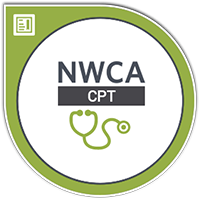Phlebotomy Technician
On-Campus Certification Course from JEVS Edu Connect
Program Description
The phlebotomist is a vital member of the clinical laboratory team, whose main function is to obtain patient’s blood specimens by venipuncture and micro-collection for testing purposes. Phlebotomists are employed throughout the healthcare system including in hospitals, neighborhood health centers, medical group practices, HMO’s, public health facilities, veteran hospitals, insurance carriers, and in other healthcare settings. The demand for phlebotomy technicians has increased substantially with the overall complexity of healthcare services and the risks of infectious disease. Current healthcare industry experts predict a 15% increase in phlebotomy jobs by 2024.
This program prepares learners to collect blood specimens from clients for the purpose of laboratory analysis. Learners will become familiar with all aspects of blood collection and will review the skills needed to perform venipunctures safely. Topics in this course include medical terminology, related anatomy and physiology, blood collection procedures, and procedures for collection of other types of specimens within the scope of practice of the phlebotomist.
After completing this program, learners will be able to:
- Explain the steps in selected specimen collection procedures performed by the phlebotomy technician
- Explain the safety procedures in the healthcare setting and specifically in performing specimen collection procedures
- Identify specific supplies and equipment used in selected specimen collection procedures
- Explain precautions and guidelines when collecting specimens in special populations such as pediatrics and geriatrics
- Define quality of care and explain the impact on patient medical care when quality and safety are compromised in phlebotomy procedures
- Describe the anatomy, physiology, pathophysiology, and medical terminology associated with phlebotomy
- Describe the requirements of the successful phlebotomy career including desired character traits, training and education, roles and responsibilities
- Explain how phlebotomists communicate with others in the healthcare setting verbally, nonverbally, within the health record, and using computer systems
- Identify common legal issues, ethical issues, and regulatory issues commonly impacting the phlebotomist
As part of this program, Learners will complete the following hands-on labs and activities:
- Donning and Doffing Medical Personal Protective Equipment (PPE)
- Donning and Doffing Isolation PPE
- Preparing for the Patient Encounter
- Performing Hand Hygiene
- Performing Required Steps in Patient Identification
- Using a Tourniquet, Palpating the Vein, and Using a Venoscope
- Decontaminating a Puncture Site
- Performing Venipuncture with the Syringe Method
- Performing Venipuncture with a Winged Infusion/Butterfly Set
- Performing Venipuncture with the Evacuated Tube Method
- Performing Microcollection Procedures
- Performing Capillary Blood Collection Procedures
- Performing a Blood Smear for Microscopic Slides
- Performing a Heal Stick Procedure
- Performing Procedures for Capillary Blood Collection
- Performing Radial ABG Procedure
- Taking Vital Sign Measurements
Certification Opportunities
After completing this program, learners will have the opportunity to take the leading national/industry-recognized certification exam(s) essential to entry-level employment in this fast-growing field.
 |
National Workforce Career Association (NWCA) Certified Phlebotomy Technician (CPT) |
| National Healthcareer Association (NHA) Phlebotomy Technician Certification (CPT) |
Optional Volunteer Externship Opportunity
Learners who complete this program are eligible to participate in an optional volunteer externship opportunity with a local company/agency/organization whose work aligns with this area of study in order to gain valuable hands-on experience. As learners progress through their eLearning program, an Externship Coordinator will reach out to coordinate placement.
Note: Additional documentation including health records, immunizations, drug-screening, criminal background checks, etc. may be required by the externship facility.
Requirements
- High School Diploma or GED
Program Details
- On-Campus Program
- 90-Hour Schedule
- Hands-On Labs
- eBooks & Digital Materials Included
- Laptops Available
- National Certification Opportunity
- Certificate of Completion
- Clinical Externship Opportunity